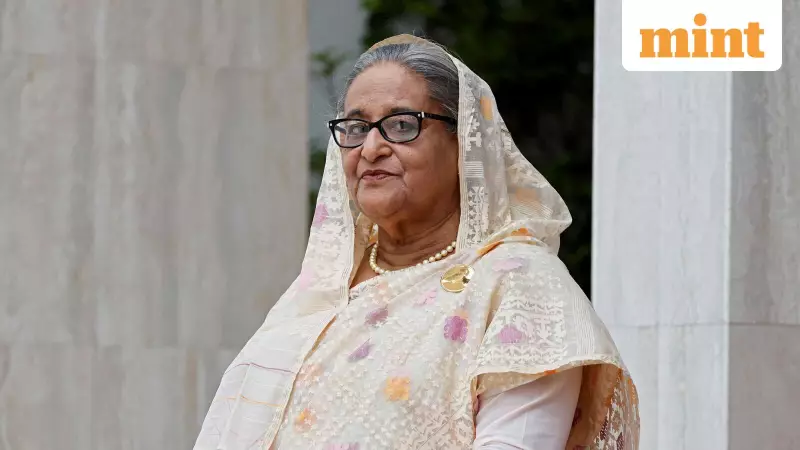
India's Delicate Diplomatic Position
India confronts a significant foreign policy challenge as it navigates relations with Bangladesh following the political upheaval that saw Prime Minister Sheikh Hasina ousted from power. The situation demands careful balancing between humanitarian considerations and strategic national interests in a region witnessing increased geopolitical competition.
The Hasina Dilemma and Regional Dynamics
New Delhi faces a critical decision regarding Sheikh Hasina, the former Bangladeshi prime minister who has been sentenced to death by Bangladesh's International Crimes Tribunal. India cannot and should not extradite Hasina back to Bangladesh, despite official requests from Dhaka. This position comes amid growing concerns about Bangladesh's shifting foreign policy orientation.
The interim administration under Muhammad Yunus, who took charge after violent anti-government protests in August 2025, displays noticeably cooler relations with India. Yunus, previously penalized by Hasina's government, appears less charitably inclined toward the former ruler. More alarmingly, his administration has welcomed frequent visits from Pakistani military and intelligence officials, raising concerns about emerging anti-India alliances.
Key figures within the current Bangladeshi administration have made threatening remarks about potentially isolating India's northeastern states by blocking the strategic 'chicken's neck' corridor - the narrow land passage connecting mainland India to its northeastern regions between Bhutan, Nepal and Bangladesh.
Economic and Strategic Stakes
The economic relationship between India and Bangladesh represents a crucial aspect of bilateral ties. While Bangladesh trails India in economic complexity and technological capability, its per capita income nearly matches India's, largely driven by robust exports that benefit from preferential access to Western markets.
Indian investments in Bangladesh's textile and garment sector provide Indian businesses easier access to international markets than would be possible directly from India. Beyond textiles, Bangladesh imports significant quantities of petroleum products, consumer goods, and electricity from India. The interconnected power grid also facilitates Nepal's hydroelectric power exports to Bangladesh.
The logistical connections established during Hasina's tenure remain vital for India's strategic interests. The Maitri Bridge over River Feni and the 12.2-kilometer rail link between Chittagong and Agartala provide crucial freight access to India's northeastern states through Bangladesh's Chittagong port. Maintaining these routes remains essential for regional connectivity and economic integration.
Growing Chinese Influence and Strategic Response
China's expanding footprint in Bangladesh presents another layer of complexity for Indian foreign policy. Even before the recent political changes, Dhaka and Beijing were strengthening ties, but Chinese activity around Chittagong port has intensified significantly. The October 2025 'goodwill' visit by two Chinese naval ships to Chittagong raised particular concerns about Beijing's strategic ambitions in the Bay of Bengal.
While Bangladesh under Sheikh Hasina sometimes displayed characteristics of a 'swing state' in regional geopolitics, her government cooperated closely with India on critical security matters, particularly in denying sanctuary to separatist groups from India's northeastern states.
The current scenario requires India to mobilize Bangladesh's non-Islamist majority in favor of maintaining positive relations. The countries share deep cultural, historical, and economic connections that could facilitate such outreach. Additionally, India needs to reinforce awareness of its crucial role in Bangladesh's 1971 liberation war, a historical narrative that some international actors have attempted to diminish.
With the potential for street protests and even civil conflict arising from Dhaka's crackdown on Hasina's Awami League party, India must walk a fine line. Providing shelter to Hasina doesn't equate to defending all actions of her previous government. New Delhi's challenge lies in protecting its strategic interests while navigating Bangladesh's complex domestic political landscape and countering the combined influence of China and Pakistan.





